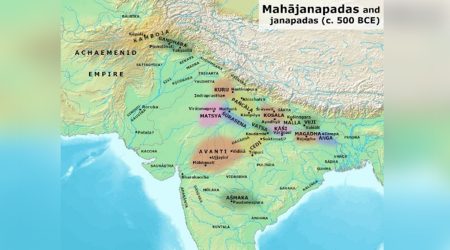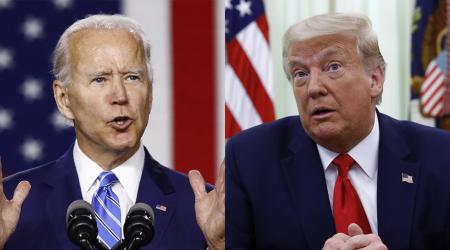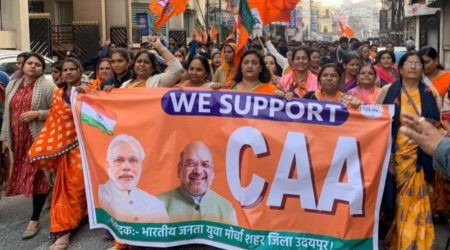By Vipul Tamhane
On January 16, Iran launched air strikes deep inside the Pakistani territory, and two days later Pakistan retaliated with a missile attack inside Iran, though its aircraft refrained from entering Iran’s airspace.
This was Pakistan’s first land attack on Iran since the 1980s. This is a disaster in making for Pakistan as it is already struggling with its economy, racked by instability. Pakistan is grappling with a broken political system and internal militant conflict, with at least 100 attacks blamed on the Pakistan-Taliban at the Afghanistan border.
Despite the de-escalation of the conflict, the root causes remain unchanged, which means there is again a possibility of an Iran Pakistan conflict. Iran on the other hand, is engaged in an indirect conflict with the West in the Red Sea.
The Shah of Iran supported Pakistan with weapons and money against India in two Wars the 1965 and then again in 1971. But today, Iran is a close friend of India while it is an arch enemy of Pakistan. This is due to India’s genius non-alignment strategy.
To understand the friends turned foes dynamics, we first need to understand the history of Iran Pakistan relationship, because they’re neither friends nor enemies, making it just complicated.
Pakistan, formed in 1947 as an Islamic country, gained support from all Muslim countries worldwide. Iran, one of the few countries where oil was discovered, was one of the first to recognize Pakistan, making them best friends and allies. The Shah of Iran was the first head of state to visit Pakistan. The friendship continued during the Cold War, supporting America against the Soviet Union. Iran and Pakistan were backed by the same superpowers, making their relationship stronger. Iran supported Pakistan in conflicts with India, including the 1965 and 1971 wars.
The turning point came in 1979, when Iran’s Islamic revolution overthrew the Shah regime, transforming the nation into an Islamic Republic under Ayatollah Khomeini. Khomeini believed that Americans and Europeans were using Iran as a puppet to extract oil at cheap costs and sell it to the world at a profit.
This decision made Iran enemies and influenced relations between Pakistan and Iran. The Soviet Union and the US entered Afghanistan in the 1980s, causing a critical point for Iran and Pakistan. Iran supported the Soviet Union, while Pakistan and the US incubated the Taliban. The conflict escalated in 1998 when the Taliban killed Iranian diplomats in Mazar-e-Sharif, intensifying animosity between Iran and Pakistan. Since then, the relationship between the two countries has been extremely unpleasant.
The conflict was exacerbated by the rival superpowers’ actions, with Iran backing the Soviet Union and Pakistan incubating the Taliban. While some prime ministers try to mend the relationship the others try to ruin it.
Pakistan and Iran share roughly a 900 km border, known as the Goldsmith line which runs from Afghanistan to the Arabian Sea. This region of Balochistan is a treasure of natural resources, making it the richest Pakistani province in terms of gas and minerals, accounting for 40% of Pakistan’s entire gas production.
Baluchistan as a region, has a long strategic coastline along the Arabian Sea which is home to two precious deep water ports which are Gwadar Port of Pakistan and Chabahar Port in Iran. However, Baluchistan has become the heart of this conflict as the Baloch people in Pakistan feel very marginalized, because they have faced suspicion and discrimination from both Pakistani and Iranian governments.
In the impoverished region of Baluchistan more than 7,000 people have disappeared. The Baloch people are fighting against the Pakistani army and against the Chinese PLA. Pakistan and Iran, both over the years have deliberately suppressed the Baloch people to poverty, viz. 65 percent below the poverty line in Pakistan and 80% in Iran, ironic to the fact being the mineral rich region on both the sides estimated to be $1 trillion worth of resources.
The Baloch Liberation Army and Iranian Baloch militant groups have been accused of collaborating for resources and shelter, leading to accusations of insufficient control. This off-the-grid collaboration has deteriorated their relationship, with both countries now suspicious of each other. The Baloch rebels attack Pakistan and then take shelter in Iran, while the Iranian militants attack Iran and then take refuge in Pakistan. This has resulted in a deteriorating relationship between the two countries.
How did it all start? It turns out on December 15 last year, a group called Jaish-al-Adl attacked a police station in Iran killing 11 Iranian police, triggering Iran to attack Pakistan. So, on January 16, Iran launched missile strikes into Pakistan’s Baluchistan region killing two children. As a response, Pakistan launched their own missiles into Iran and deployed fighter jets into Iran’s Sistan Baluchistan Province.
When the world asked both the states about the attacks, both responded that they only targeted the terrorist camps on each side without any intent to harm or even disrupt the civilians on either side, the reports say otherwise. This concerns the South East Asia Region, as two major countries – one armed with nuclear weapons and other with oil money, almost started a war.
The biggest problem is that even though this war has been de-escalated, the root causes of their conflict still remain the same which are militant, the Balochistan condition, cross border security and anti and pro-American alignment.
This sad story of how two friends became enemies in spite of no real problem actually teaches us some very important lessons in geopolitics. First lesson is that America’s problem is not your problem, so every country needs to look at its individual relationship with another country rather than that country’s equation with America.
History has many times shown us that western powers might come and go based on its convenience, but it is these two countries that have to deal with a conflict for half a century which results in a tremendous cost in terms of both human life and money. In this case, while India has cleverly remained neutral in the Russia Ukraine war scenario, Pakistan for no reason has spoilt its relationship with Iran because they kicked out Americans in 1979.
Second lesson comes in the words of erstwhile US Secretary of State Hillary Clinton in 2011 to Pakistan: “You can’t keep snakes in your backyard and expect them to only bite your neighbor”.

Vipul Tamhane is a counter terrorism expert and a visiting faculty with Pune University (SPPU) at Dept. of Defense and Strategic Studies (DDSS). He is also founder and Editor-in-Chief at Diplomacy Direct, a public interest Think Tank based in India.
Disclaimer: The views expressed are not necessarily those of The South Asian Times












